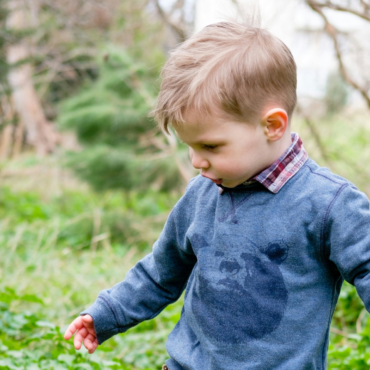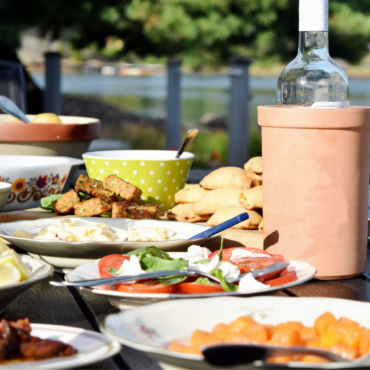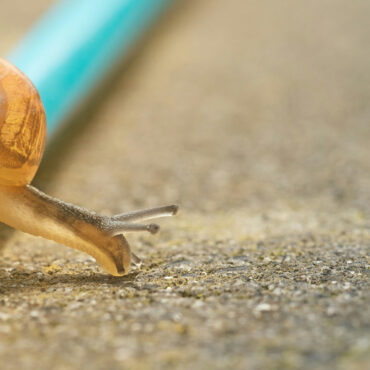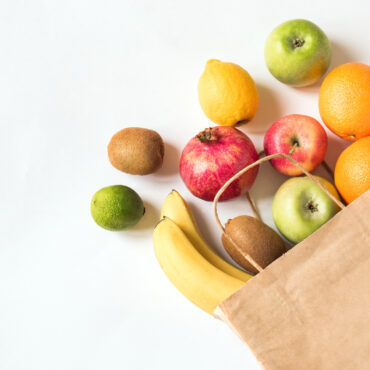Blog & News
Reduction
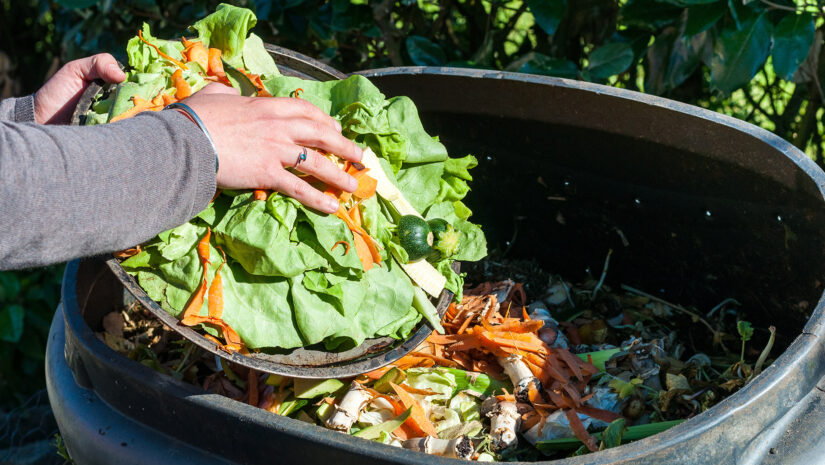
Looking for a good resolution for 2024? Start composting!
If you aren’t yet recovering your organic materials, you’re not alone. Did you know that two out of three Montrealers don’t participate in composting? The good news is that there’s still plenty of room for improvement, and you can contribute to change one brown bin at a time! Let’s dismantle the obstacles and identify the best practices for turning your kitchen scraps into gold. If you’re already in the habit of doing so, this article will help you enhance your sales pitch to encourage your family and neighbours to take the plunge.
1. Why compost?
Before answering the how, let’s try to understand why this issue is important. Organic matter in a few figures is:
– 42% of a Montreal trash bag, or 96 kg (inhabitant/year)
– 301,430 tonnes generated for only 104,005 tonnes recovered in the Greater Montreal area (2022)
So what isn’t recovered… goes to landfill. And with sites starting to saturate, this is a critical issue for waste management in Quebec. What’s more, decomposing organic matter in a landfill produces greenhouse gases, when it could be reused to enrich our soils. Completing the natural cycle by transforming our kitchen scraps into fertilizer is a much better idea, don’t you think?

2. An obstacle, a solution!
In working with businesses in the Rosemont Borough as part of the Zero Waste Challenge – Business, we have observed a number of recurring obstacles for taking action. That said, many of these businesses have managed to overcome them! So there are solutions to counter them.
– “Compost smells bad”: it can happen, but no more than your trash can, and not if it’s done right!
Alex, waiter at Randolph Pub Ludique, reports: “We really do compost a lot, if not immensely. We take it out once a week, on Sunday evening and, in the meantime, it’s stored in a room in the basement. The reality is that even considering the quantity, it really doesn’t smell that much. You can smell a little fermentation, but it isn’t enough to be bothersome, even if you’re composting meat.”
Once you’ve put these tips into practice, you’ll be amazed at how odourless compost can be!
Tip #1: Place a sheet of newspaper or cardboard at the bottom of your outside bin. In winter, this will also prevent scraps from freezing to the bin.
Tip #2: Did you know that you can compost your dirty brown paper and paper towels (without chemicals)? This helps to absorb decomposition juices and thus limit odours.
Tip #3: Sprinkle baking soda or place a charcoal briquette at the bottom of the bin.
Tip #4: Place your recovery bin in your freezer. You’ll see, it’s the foolproof way to reduce odours to zero!
Tip #5: Clean your bin regularly with ecological soap, vinegar or baking soda.
Tip #6: Use compostable bags.
As for insect nuisance, Loïc, manager of Chez Roger restaurant, explains: “Our solution is to store all compost in a cold room for as long as possible. Insects can’t live and reproduce in the cold environment. Then in summer, try to take the compost out at the last minute to limit nuisance. Besides that, from fall to spring, compost is easier to manage! In winter, carrying appropriate compostable bags helps, because if you don’t put the matter in bags it could freeze into a block and then you can’t empty the bins.”

– “It’s hard to change your habits”: so let’s make the change easy to introduce!
From the perspective of Loïc, who successfully implemented composting in his restaurant: “Sure, it takes an effort at first, but after a few weeks, once it’s integrated into the routine it becomes much easier. We don’t even notice it anymore. It’s not that complicated, it’s a list of small actions that once organized and communicated, are easily put in place and help reduce a lot of waste.”
Here are some tips to facilitate this transition:
Tip #1: Place small recovery bins in strategic locations around the house: one on the kitchen counter, another in the bathroom… The goal is for it to be accessible!
Tip #2: Involve all household members and decide together on best practices.
Alex reflects on his experience: “It saves a lot of waste. In terms of weight alone, compost is much heavier than garbage. We have very few garbage cans. Leaving aside the environmental argument and the fact that it’s a good thing to do, I don’t think the business could run the way it does now without compost. For example, if we didn’t have compost, we’d have to change the garbage cans more often in the middle of a rush, which could be really complicated.”
– “I don’t know what can go in the brown bin”: it’s simple, ask yourself these two questions:
Is it edible?
Is it brown paper or cardboard soaked with food or water (unwaxed, chemical-free)?
If yes, then yes it can be composted!
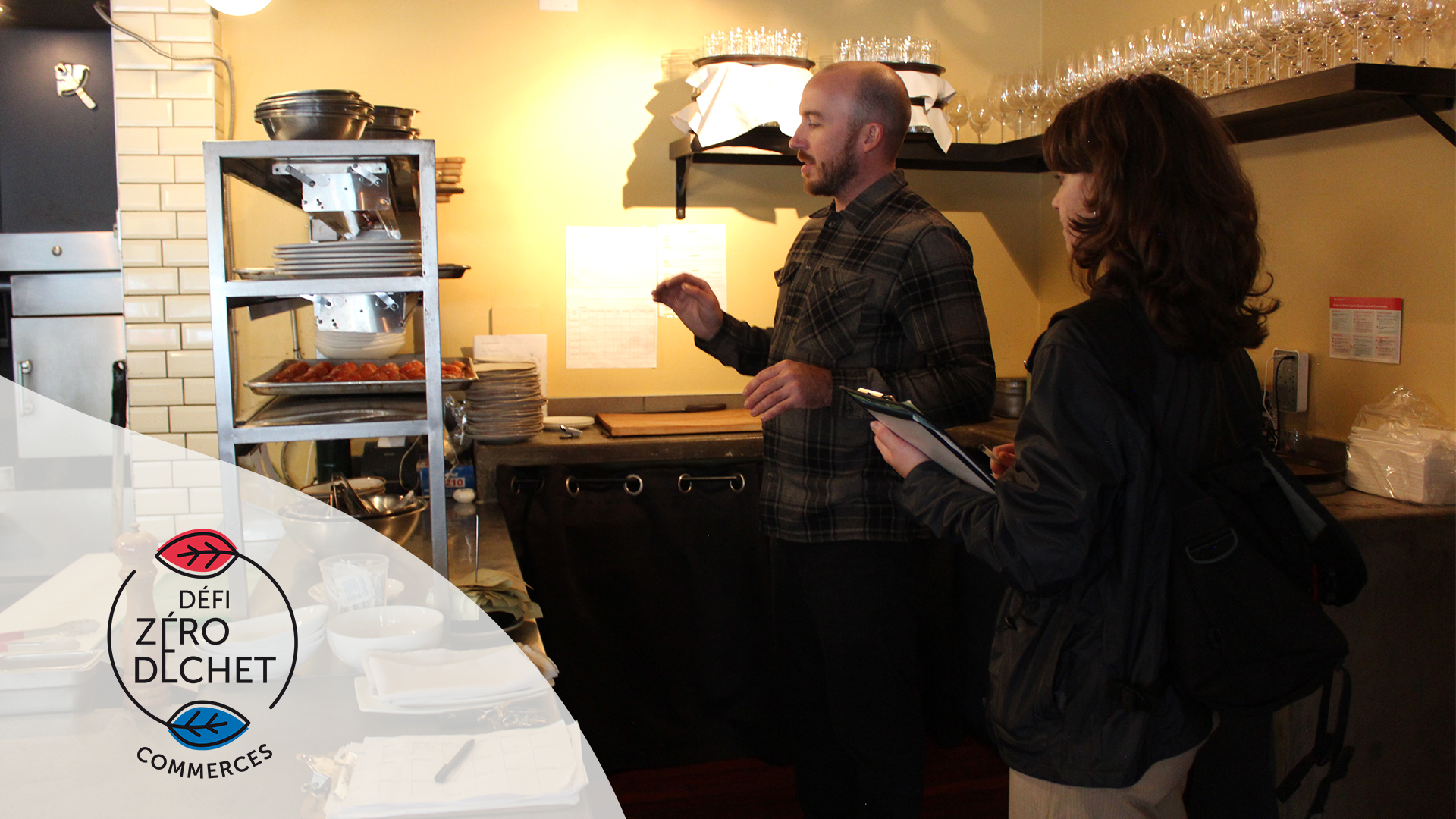
So then, have we convinced you? Many local businesses have taken up the Zero Waste Challenge and started collecting organic waste. Once the habits were changed, they were surprised to see how easy it was to compost, and they recognize that it’s a rewarding action for their teams. If businesses that have to manage large volumes of organic waste can do it, so can you! Join the movement and add your scraps to the edifice to make Montreal a more sustainable city.
Sources:
– Bilan 2022 de la gestion des matières résiduelles de l’agglomération de Montréal (in French only)
https://portail-m4s.s3.montreal.ca/pdf/vdm_bilan_gmr_2022_0.pdf
– Les Montréalais boudent le compost (French only)
https://www.lapresse.ca/actualites/environnement/2023-07-15/les-montrealais-boudent-le-compostage.php#:~:text=Objectif%20100%20%25,est%20d%C3%A9j%C3%A0%20termin%C3%A9%20depuis%202020.

Waste Management, Project Manager
Julie Bécart
An eternal optimist, Julie believes that there are solutions to every problem, especially if we rely on the strength of the community. Very sensitive to the nature that surrounds us, she feels the urgent need to act to preserve it. She expresses this commitment through her role as a waste management advisor and her small everyday gestures. She loves long discussions to remake the world, yoga, climbing, and music.
View all posts...Related posts :
Contact us
Earth Day Canada
5818, boulevard Saint-Laurent
Montréal (Québec) H2T 1T3 Canada
Phone : (514) 728-0116
Toll free : 1 800 424-8758
Fax : (514) 303-0248
Email: hello@earthday.ca
2026 © Earth Day Canada. All rights reserved.
Privacy policy · Terms of use · Trademark
